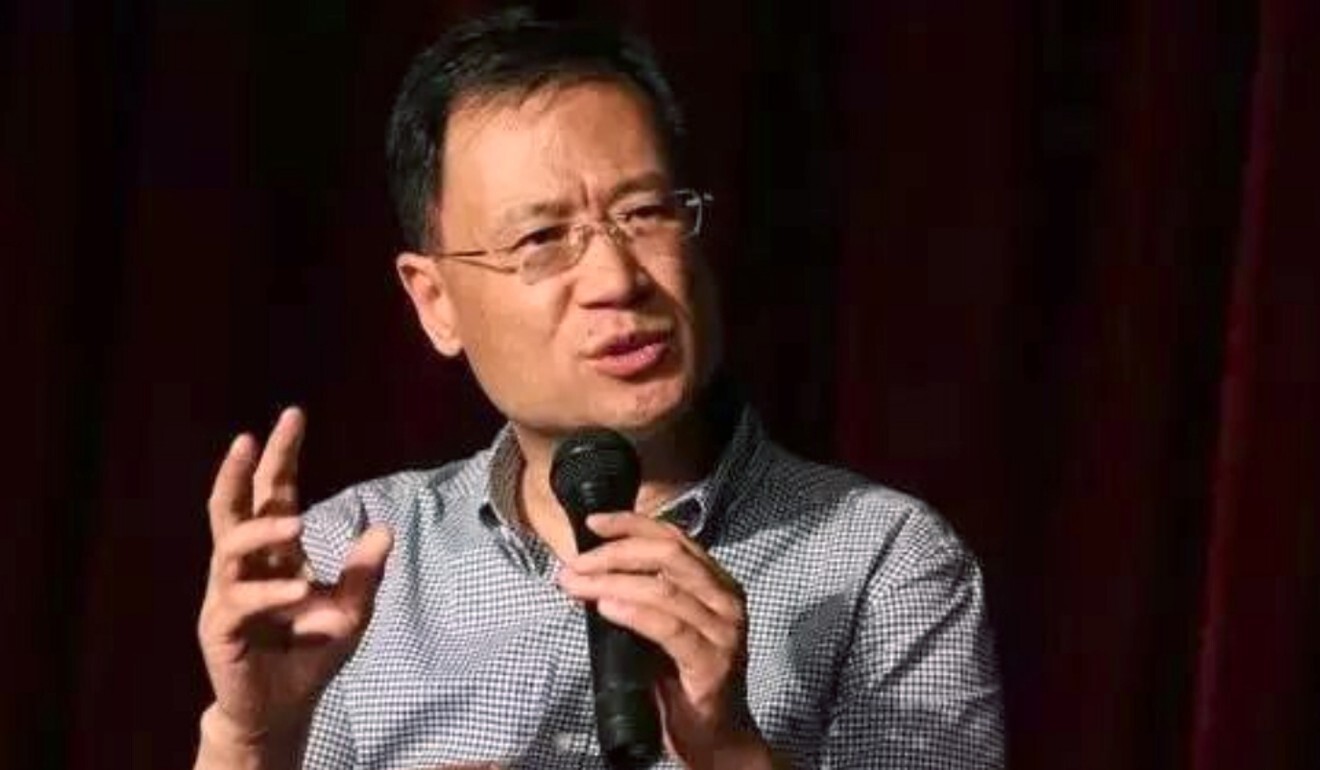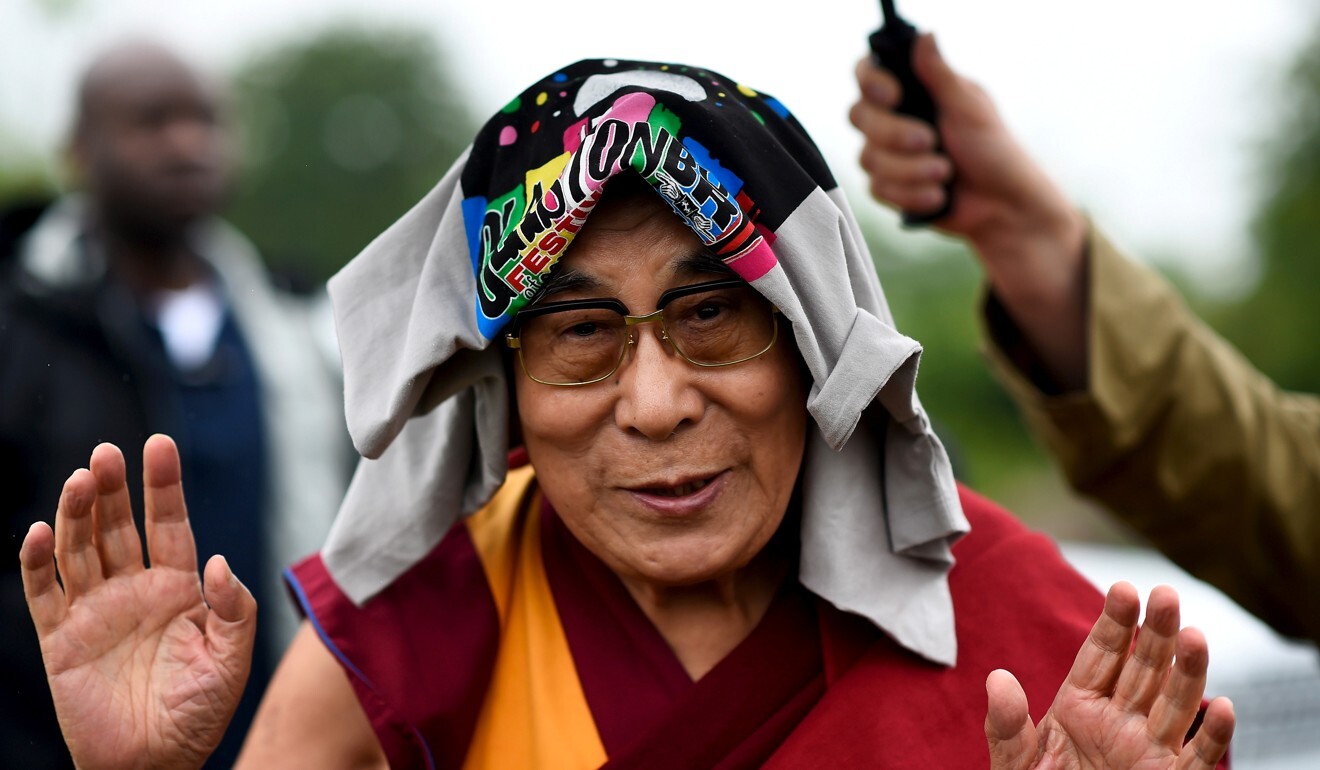
US imposes sanctions over Tibet and urges Beijing to release outspoken professor Xu Zhangrun
- Washington will restrict visas for Chinese Communist Party officials who block outsiders from visiting the Tibetan Autonomous Region
- Law professor Xu Zhangrun has publicly criticised Chinese leader Xi Jinping

The US State Department blasted China on two human rights fronts on Tuesday in the latest sign of deteriorating relations, unveiling visa sanctions on Chinese officials tied to Tibet and demanding the release of a law professor who publicly criticised Chinese leader Xi Jinping.
The double salvo comes less than a week after Beijing imposed a new national security law on Hong Kong that has angered many US and European lawmakers. The law, which critics say violates the Basic Law, Hong Kong’s mini-constitution, has sparked fears that China will squelch free speech and peaceful assembly in the city.
Secretary of State Mike Pompeo said the US would impose visa restrictions on Chinese officials who block outsiders from visiting the Tibetan Autonomous Region (TAR) and other Tibetan areas.
“Access to Tibetan areas is increasingly vital to regional stability, given the PRC’s human rights abuses there, as well as Beijing’s failure to prevent environmental degradation near the headwaters of Asia’s major rivers,” Pompeo said in a statement. “PRC officials and other citizens enjoy far greater access to the United States.”

Under a tit-for-tat provision of the Reciprocal Access to Tibet Act of 2018, Chinese officials can be denied US visas if they are complicit in denying American government officials, journalists, independent observers and tourists access to Tibet.
Separately on Tuesday, the State Department lashed out at Beijing for detaining a Tsinghua professor.
“We are deeply concerned by the PRC’s detention of Professor Xu Zhangrun for criticizing Chinese leaders amid tightening ideological controls on university campuses in China,” Morgan Ortagus, the State Department spokeswoman, said in a tweet.
“The PRC must release Xu and uphold its international commitments to respect freedom of expression,” she said.
The Chinese embassy in Washington did not respond to a request for comment.
Beijing has not yet acknowledged Xu’s arrest at his home in Beijing by police on Monday, which was reported by close contacts of Xu’s family. But the outspoken 57-year-old professor had been closely watched by Chinese authorities since at least last year.
In May, he published an essay urging the country’s leadership to reflect on its handling of the Covid-19 pandemic and apologise for its mistakes.
In February, while the outbreak still raged in China, he publicly blamed senior Chinese leadership for “putting politics ahead of the people” and wrote that the country’s political system had “collapsed under the tyranny”.
One year before, Xu had been suspended from his teaching post at Tsinghua University, one of China’s top schools, after he published an article condemning the Communist Party’s decision to remove presidential term limits.
The Trump administration’s appetite for criticizing China has gone through stages, tied in part to progress on a trade deal and President Donald Trump’s wavering feelings toward Xi.
But the tone has sharpened notably after Covid-19 spread widely in the US, tied in part to Beijing’s early lack of transparency and Trump’s growing attempts to deflect blame for mismanaging the pandemic. And Pompeo, dubbed “Trump attack dog on China”, has often been the most publicly vocal of the administration’s critics.
Pompeo told a radio interviewer on Monday that there was an “enormous mismatch” between Xi’s policies and “the most fundamental human rights”.
On Tuesday, another top American official, the head of the FBI, issued his own dire warning about China’s efforts to stifle criticism inside and outside its borders.
We are deeply concerned by the PRC’s detention of Professor Xu Zhangrun for criticizing Chinese leaders amid tightening ideological controls on university campuses in China. The PRC must release Xu and uphold its international commitments to respect freedom of expression.
— Morgan Ortagus (@statedeptspox) July 7, 2020
In a speech, FBI Director Christopher Wray said that Beijing has systematically pressured overseas Chinese citizens whom the Communist Party views as dissidents to return home, in some cases by threatening their families.
Wray said the programme, called Operation Fox Hunt, was led by Xi.
“We’re talking about political rivals, dissidents and critics seeking to expose China’s extensive human rights violations,” Wray said, adding that people who fear they are targets of the programme should contact their local FBI field office.
Tuesday’s announcement on visa sanctions against Chinese officials over denied access to Tibet did not include specifics or a list of officials subject to the restrictions. The move came the day after the 85th birthday of the Dalai Lama, the exiled Tibetan spiritual leader condemned by Beijing.
The US law requires that the administration provide to the US Congress within one year of its enactment in December 2018 a report that included a list of the individuals barred from entering the US or stripped of their visas.

But the Trump administration has not always followed these deadlines.
Analysts say Trump has tended to view US-China relations through a decidedly political prism closely tied to his re-election bid. In particular, he is keen to appease American farmers with large Chinese agricultural purchases and doesn’t want to see the phase one trade deal fall apart precipitously.
That’s sometimes led him to slow-walk laws and fail to act on sanction threats and human rights initiatives emanating from Congress – including those supported by China hawks in his own party – amid concern that he is losing control, said Henrietta Treyz, director of economic policy with the Veda Partners consultancy and a former congressional staffer.
“He wants to look tough on China but doesn’t want to be tough,” Treyz said. “He can’t have phase one fail. He knows this is going to flip President Xi out. It’s the Senate that forces his hand more than he wants to.”
Analysts add that it was questionable how much Trump personally cares about human rights given how little he has said about Tibet, Xinjiang and even Hong Kong. In a blockbuster book released last month, former national security adviser John Bolton wrote that Trump was willing to turn a blind eye to the massive “retraining” camps for Uygurs in Xinjiang if the Chinese president helped him get re-elected.
The Trump administration has condemned the book and denied the allegations.
China is one of the few bipartisan issues these days in a deeply divided US Congress, fuelling a spate of anti-China legislation.
“In the spirit of true reciprocity, we will work closely with the US Congress to ensure US citizens have full access to all areas of the People’s Republic of China, including the TAR and other Tibetan areas,” Pompeo added on Tuesday.